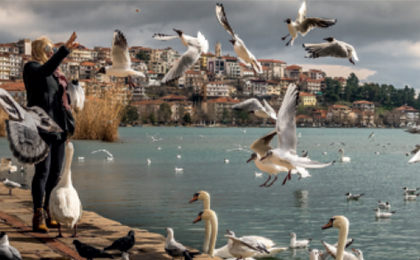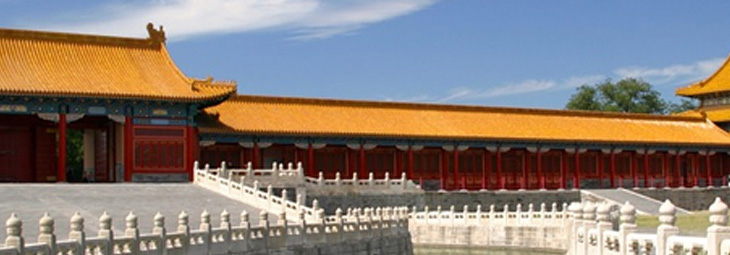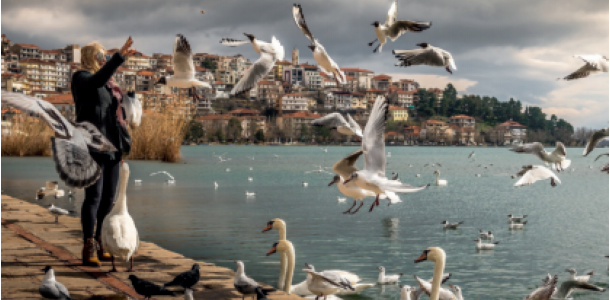



Hok-Lin Leung (School of Urban and Regional Planning of Queen’s University)
COVID-19 will ultimately be a thing of the past, but there will also be much second-guessing as we leave it behind. The question is, why it broke out and spread? Yes, someone must have made wrong predictions or even have covered it up, and there were those who went so far as to make fortunes out of it. The day of reckoning would definitely come for those that deserve to be punished, but not for all as misjudgment can somehow be justified.
Advances in civilization have made our relations with the nature increasingly complicated, so much so that the nature (including ourselves as a species) is often subject to humans. Modern civilization is built on a belief that man can conquer nature. That is, if we want to eat better, we would put chemical fertilizers into the soil; if we want to live longer, we would put medicine into our body; if we want to go faster, we would dig up the planet to find fuel for our cars; and if we want to live in bigger houses, we would flatten hills and weed out woods. Everything we do is done at the sacrifice of Mother Nature. We keep up our exploitation until she really can’t make any compromise, venting out her wrath in the form of viruses, wildfires, and deluges.
So it’s fair to say that the advances in modern civilization are marked by faster and greater ecological imbalance, which explains why natural disasters have occurred more frequently and become more varied, serious, and unavoidable. If ecology has taught us anything, it is that every ecosystem has its unique upper and lower limits and it’d be destroyed if it goes beyond the limits. Hunters and the prey provide just a case in point, as the upper and lower limits of the number of these two species form an integral part of their coexistence.
The coexistence between humans and the nature is an enormous and exceedingly complicated ecosystem that consists of countless interconnected uncertain and unknown subecosystems. So who possibly has the ability to correctly predict when and where a disaster would occur? Of course no one can come up with a better plan, but what is certain is that there’s bound to be a day when a disaster strikes. And until it does, we have to make good preparations.
Coexisting with the nature is fundamentally different from conquering it. Conquest is about winning a fight, whereas coexistence is not about winning versus losing or success vs failure. Viruses are in constant change, and wildfires and storms can come at any time. In other words, we can only mitigate them, yet cannot eradicate them. Living together with Mother Nature is like playing poker with her. The key lies not in winning every game, which is impossible even for the best players, but in winning as much as you can when there is good luck and losing as less as you can when there is bad luck. You cannot control what you’ll have in your hand, but you can definitely decide how to play the game. Similarly, don’t take a chance with natural disasters, but do prepare to protect against them as they do occur.
The just-in-case plan is not about preparation, but about protection when something bad happens. It focuses on rebound, that is, a return to safety, which rests upon two things: the choice and the cost. More choices come with greater costs. It’s just like buying lottery tickets. If you buy all of them, you would certainly win a prize. But the prize would be meaningless to you as you have paid more than you have won.
Planners can help people escape from disasters by using, structuring, and distributing city spaces to support epidemic prevention, firefighting, and flood control at the frontline. For example, it would be easier to have emergency vehicles running in checkerboard-like road networks, evacuate people in broader and proper public open spaces, and control the spread of infections with medium-sized wa- ter-wastewater transport and treatment systems.
Back to viruses. Throughout the evolution of the nature, viruses carry with them plant and animal genes to transfer and play a dominant role in the carbon and nutrient cycles. But what kind of a role do we play as humans in the evolution? This is something that we should contemplate on. Are we the masters of the Planet Earth or travelers that wouldn’t stay for too long? Anyway, we have to learn to live with everything else on the planet, including viruses. We shall not irritate or despise them. And in particular in this self-centered civilization, we have to stay vigilant and respect everything else before we can enjoy harmony with them.